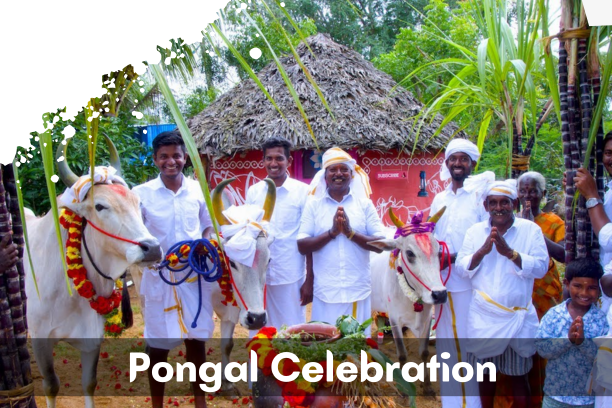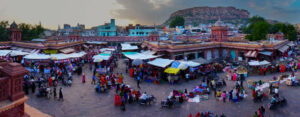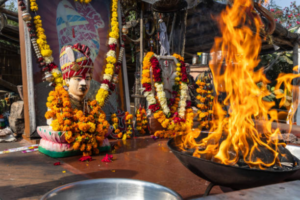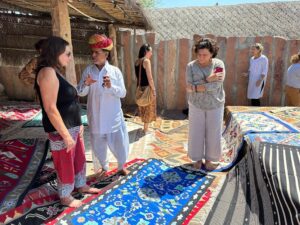Pongal Festival important is the celebrted
Agricultural Significance: Pongal Festival 2024 Celebration Beyond The Harvest festival, marking the culmination of the agricultural cycle. It celebrates the abundance of crops and the hard work of farmers throughout the year. As agriculture has been the backbone of South Indian society for centuries, Pongal holds deep agricultural significance, symbolizing prosperity and fertility.
Cultural Heritage: The Pongal festival 2024 is deeply rooted in Tamil culture and tradition. It showcases the rich cultural heritage of the region through various rituals, customs, and festivities. Pongal is an opportunity for people to reconnect with their cultural roots, preserving and passing on age-old traditions to future generations.
Religious Observance: Pongal Festival 2024 is also a religious festival dedicated to the Sun God, Surya. Worshipping the Sun God is believed to bring blessings for a prosperous and successful life. The religious aspect of Pongal adds spiritual significance to the celebrations, fostering devotion and gratitude towards divine forces.
Community Bonding: Pongal Festival 2024 is a time for families, friends, and communities to come together and celebrate. It strengthens social bonds and fosters a sense of unity and belonging among people. Through shared meals, cultural activities, and festive rituals, Pongal promotes camaraderie and solidarity within communities.
Economic Impact: The festival has significant economic implications, especially in rural areas where agriculture is the primary livelihood. Pongal brings economic prosperity through increased consumer spending on food, clothing, decorations, and gifts. It also supports local artisans, craftsmen, and small businesses who cater to the festive demand.
Environmental Awareness: In recent years, there has been a growing emphasis on eco-friendly A Celebration Beyond The Harvest of Pongal. Efforts are made to promote sustainable practices such as using organic materials for decorations, minimizing waste generation, and conserving natural resources. This reflects a broader awareness of environmental issues and the importance of preserving the ecosystem for future generations.
History of Pongal Fastivel
The history of Pongal festival is deeply rooted in ancient agrarian traditions and Tamil culture. Here’s an overview of its historical significance:
Ancient Origins: Pongal has its roots in ancient agrarian societies of South India, particularly Tamil Nadu, where agriculture has been a predominant occupation for centuries. The festival marks the harvest season, celebrating the abundance of crops and giving thanks to nature for a bountiful yield.
Harvest Festival: Pongal is believed to have originated as a Dravidian harvest festival, dating back over 2000 years. It coincides with the winter solstice and the transition of the Sun into the zodiac sign of Capricorn, signaling the onset of longer days and the end of the winter season.
Sun Worship: The festival is dedicated to the Sun God, Surya, who is considered the source of life and energy. Farmers offer prayers and thanksgiving to the Sun God for providing sunlight, warmth, and fertility to the crops, essential for a successful harvest.
Cultural Significance: Pongal holds immense cultural significance in Tamil Nadu and is celebrated with great fervor and enthusiasm. It is not just a religious festival but also a social and cultural event that strengthens community bonds and reinforces traditional values.
Legend of Pongal: According to Tamil folklore, the origins of Pongal are associated with a legend involving Lord Shiva and his bull, Nandi. It is said that Lord Shiva once sent his bull to earth with a message to mankind, asking them to take an oil bath daily and eat once a month. However, Nandi mistakenly announced that people should eat daily and take an oil bath once a month. This error displeased Lord Shiva, who then banished Nandi to earth to help people in farming and agriculture. Pongal is celebrated to honor Nandi’s contribution to agriculture and to seek his blessings for a prosperous harvest.
Four Day Festival:
A Celebration Beyond The Harvest Pongal is typically observed over four days, each with its own rituals and customs. The festival begins with Bhogi Pongal, followed by Thai Pongal, Mattu Pongal, and Kaanum Pongal. Each day is marked by specific activities, prayers, and celebrations.
Cattle Worship: Mattu Pongal, the third day of the festival, is dedicated to the worship of cattle, particularly cows and bulls. Cattle play a vital role in agriculture, and this day is an expression of gratitude towards them for their contribution to farming.
prepresion for Pongal Fastivel
Preparing for Pongal Fastivel involves ensure a festive and enjoyable celebration. Decorate your house with colorful kolams (rangoli), flower garlands, and traditional motifs to create a vibrant and welcoming atmosphere.
Shopping for Ingredients: Purchase all the necessary ingredients for making Pongal dishes, including rice, lentils, jaggery, milk, ghee (clarified butter), cashews, raisins, and cardamom. Ensure that the ingredients are fresh and of high quality.
Traditional Attire: Choose traditional attire such as sarees, dhotis, and traditional jewelry to wear during the Pongal celebrations. Dressing up in traditional attire adds to the festive spirit and cultural significance of the occasion.
Preparing Pongal: On the morning of Thai Pongal, gather the ingredients and prepare the Pongal dish. Follow traditional recipes and techniques to cook the sweet Pongal rice, allowing it to boil and overflow as a symbol of prosperity and abundance. Offer the prepared Pongal to the Sun God as a token of gratitude before sharing it with family and friends.
Special Offerings and Prayers: Perform special prayers and rituals dedicated to the Sun God, Surya, to seek blessings for a bountiful harvest and prosperity. Offer fruits, flowers, and other traditional offerings as part of the worship.
Celebrating with Family and Friends: Invite family members, relatives, and friends to join in the Pongal celebrations. Enjoy traditional music, dance, and cultural performances together. Share laughter, stories, and delicious Pongal dishes while strengthening bonds and fostering a sense of community.
Participating in Cultural Activities: Take part in traditional Pongal festivities such as Kolam competitions, bull-taming events (Jallikattu), and cultural programs organized in your community. Engage in festive activities that showcase the rich cultural heritage of Tamil Nadu and promote unity and togetherness.
Feeding Cattle: On the third day of Pongal (Mattu Pongal), participate in the ritual of feeding and honoring cattle, especially cows and bulls. Bathe and decorate the cattle with garlands and perform prayers to express gratitude for their contribution to agriculture and farming.
By following these steps, you can prepare for Pongal and ensure a memorable and joyous celebration filled with tradition, culture, and togetherness.
Date and Time For Pongal Festival
Pongal, the harvest festival celebrated primarily in the South Indian state of Tamil Nadu, typically falls on January 14th or 15th each year. However, the specific date of Pongal can vary depending on the Tamil calendar, which follows the lunar calendar system.
In most cases, Pongal is celebrated over a period of four days, with each day holding its own significance:
Bhogi Pongal: This marks the first day of Pongal and is observed on the day preceding the main Pongal festival. Bhogi Pongal fell on January 14th.
Thai Pongal: This is the main day of Pongal celebrations and is observed on the first day of the Tamil month of Thai. Thai Pongal was celebrated on January 15th.
Maattu Pongal: The third day of Pongal is dedicated to the worship of cattle, particularly cows and bulls. Maattu Pongal fell on January 16th.
Kaanum Pongal: The fourth and final day of Pongal, also known as Kaanum Pongal, is a day for family gatherings and outings. Kaanum Pongal was observed on January 17th.
The exact timing of Pongal festivities, including rituals, prayers, and community events, may vary based on regional customs and individual preferences. However, the festival typically involves preparing special dishes, offering prayers to the Sun God, decorating homes with kolams (rangoli), and participating in cultural activities.





